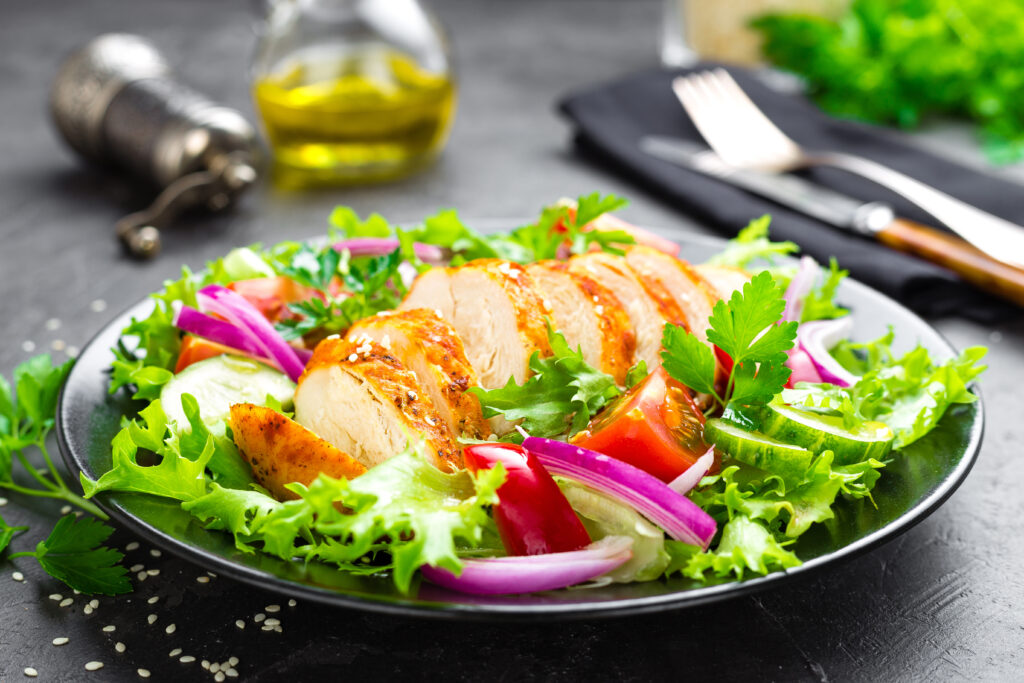Does it make any sense to consider dietary recommendations for a structural problem like scoliosis? What about neurological problems or genetic predisposition? Furthermore, what effect do environmental factors have on the expression of a genetic weakness?
These questions are worth exploring to better understand the relationship between nutrition and scoliosis. Recent research suggests that diet can play a role in influencing the development and progression of scoliosis, particularly when considering epigenetic factors.
Nutrition and Scoliosis
Scoliosis, a condition characterized by an abnormal curvature of the spine, has been found to have a genetic component. However, genetic weaknesses are not always expressed and can be influenced by external factors, known as epigenetic factors. To illustrate this point, consider a study involving pregnant rats. When these rats were fed a fatty diet, their daughters and granddaughters were found to be at a greater risk of developing breast cancer. Interestingly, even if the daughters of the first generation of rats were fed a healthy diet, their offspring (the third generation) remained at a higher risk of disease. These findings suggest that a fatty diet may cause epigenetic DNA modifications that can be passed on to future generations.
Taking this information into consideration, it becomes evident that building up the natural recuperative powers of the body and avoiding dietary insults is crucial for individuals with scoliosis. By doing so, we can minimize factors that may weaken the body or stimulate the expression of a genetically programmed weakness like scoliosis. While it is important to note that diet alone cannot cure scoliosis or completely halt its progression, making appropriate dietary choices can support overall health and potentially have a positive impact on scoliosis management.
Nutrition and scoliosis: What to eat and what to avoid
When it comes to nutrition and scoliosis, it’s important to be mindful of what you eat and what you should avoid. To support your health, focus on incorporating fresh fruits, fresh vegetables, and protein-rich meats into your diet. However, it’s recommended to steer clear of pork or packaged luncheon meats and opt for organic meat free from growth hormones or antibiotics.
Certain foods should be consumed in moderation. Citrus fruits and juices, especially tomato juice, orange juice, and other acidic juices, should be decreased in your intake. On the other hand, it’s best to avoid soda (including diet variations), artificial sweeteners like Nutrasweet, Splenda, Equal, Aspartame, Saccharin, Neotame, Acesulfame, and Sucralose, as well as corn syrup, high fructose corn syrup, and crystallized corn syrup. Soy milk and soy products, gelatin, calcium caseinate, monosodium glutamate, hydrolyzed vegetable protein (HVP), textured protein, monopotassium glutamate, hydrolyzed plant protein (HPP), yeast extract, glutamate, autolyzed plant protein, yeast food or nutrient, glutamic acid, sodium caseinate, autolyzed yeast should also be avoided.
When it comes to nutrition and scoliosis in terms of beverages, it’s advisable to limit or avoid coffee, tea (except for herbal teas which are acceptable), and alcohol. While chocolate is generally best avoided, dark chocolate is an acceptable alternative. Sugar should be reduced, although stevia is a suitable replacement. Additionally, white flour, except for sea salt, should be avoided, along with chemical, processed, greasy, fried, and junk foods such as French fries and fast food from establishments like McDonald’s.
In terms of supplements, consider incorporating the following into your routine: Inflavonoid, which can be taken every hour for pain relief if necessary after a few days of treatment; Metagest or Metaxyme (if you prefer a vegetarian option), a digestive enzyme formula taken after meals; EPA-DHA Complex, which supports neurologic function and can be taken once a day with food; melatonin, as needed, to help with difficulty sleeping (3-5mg/day as needed); Collagenics, a nutritional support for connective tissue reconstruction and repair, taken three times a day; Probioplex, which promotes the growth of “friendly” bacteria in the intestine; Iso D3, a unique antioxidant taken once a day; and Multigentics, a comprehensive vitamin/mineral formula taken twice a day.
By being mindful of nutrition and scoliosis and making informed choices about what to eat and what to avoid, you can support your overall health while managing scoliosis.
Also read: Isometric & Stretching Exercises For Scoliosis and Can you Correct Adult Scoliosis?
About:
Dr. Strauss is the director of the Hudson Valley Scoliosis Correction Center in New York. He has been actively engaged in scoliosis treatment for the past 30 years and has authored two books on the subject, Your Child Has Scoliosis and The Truth About Adult Scoliosis.
He is Vice President of the CLEAR Scoliosis Institute and a lecturer for their introductory and advanced workshops. He is certified in scoliosis bracing and in the use of scoliosis specific exercises. Dr. Strauss is a graduate of the ISICO World Masters of Scoliosis.His postgraduate studies also include a Masters Degree in Acupuncture as well as training in Grostic, Pettibon, CBP, Clinical Nutrition, Chinese Herbal Medicine, Manipulation under Anesthesia, and Electrodiagnosis.
His scoliosis practice has treated patients from 25 states and 32 other foreign countries.If you have questions about childhood and adult scoliosis and how it can be successfully treated without surgery subscribe to our channel!
